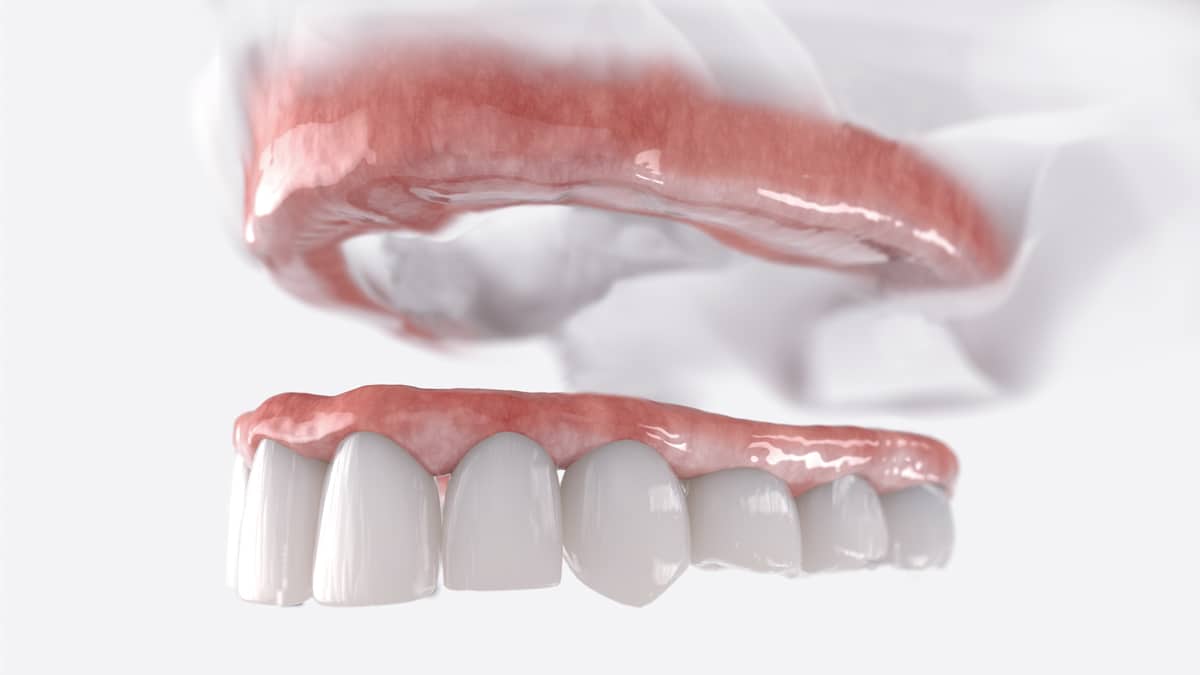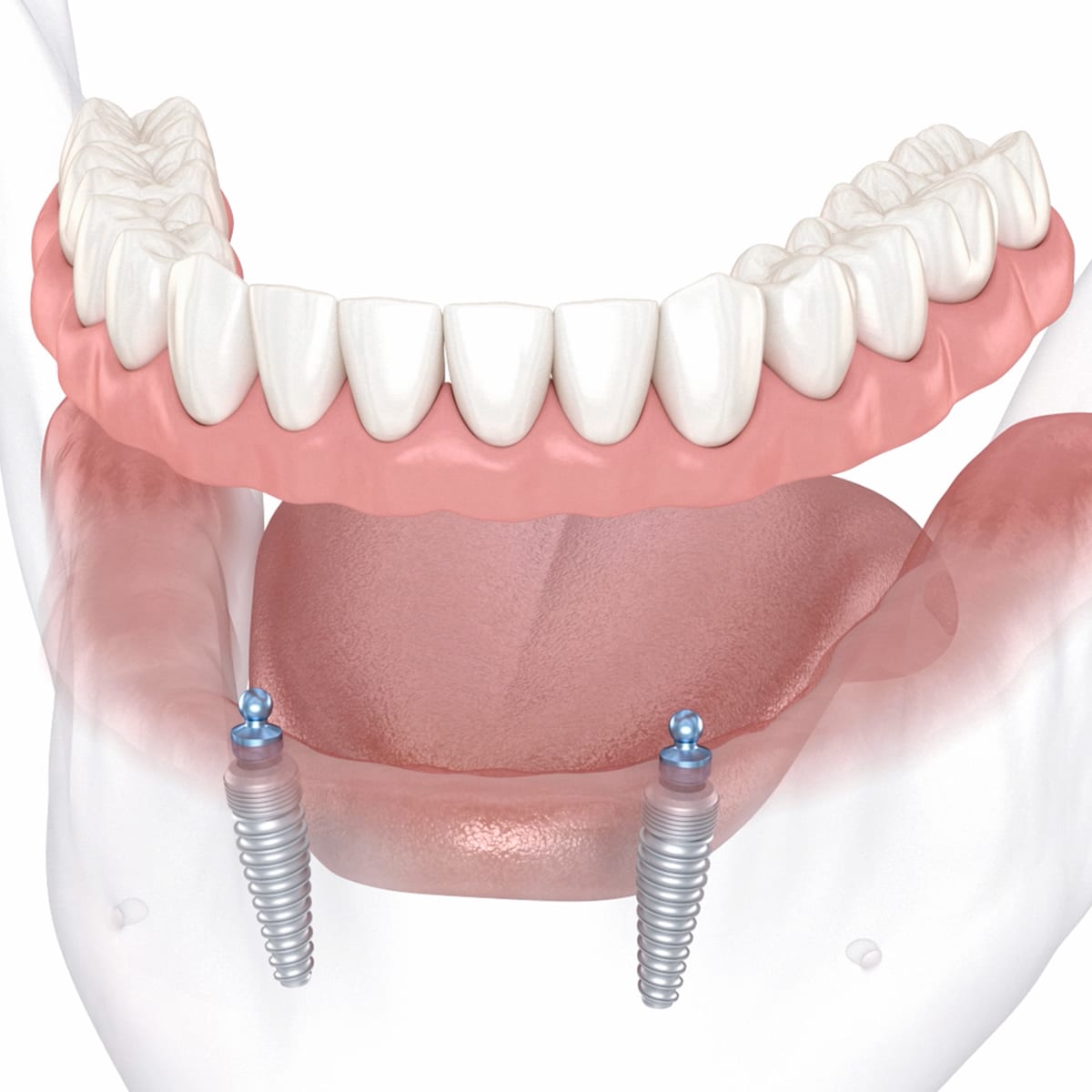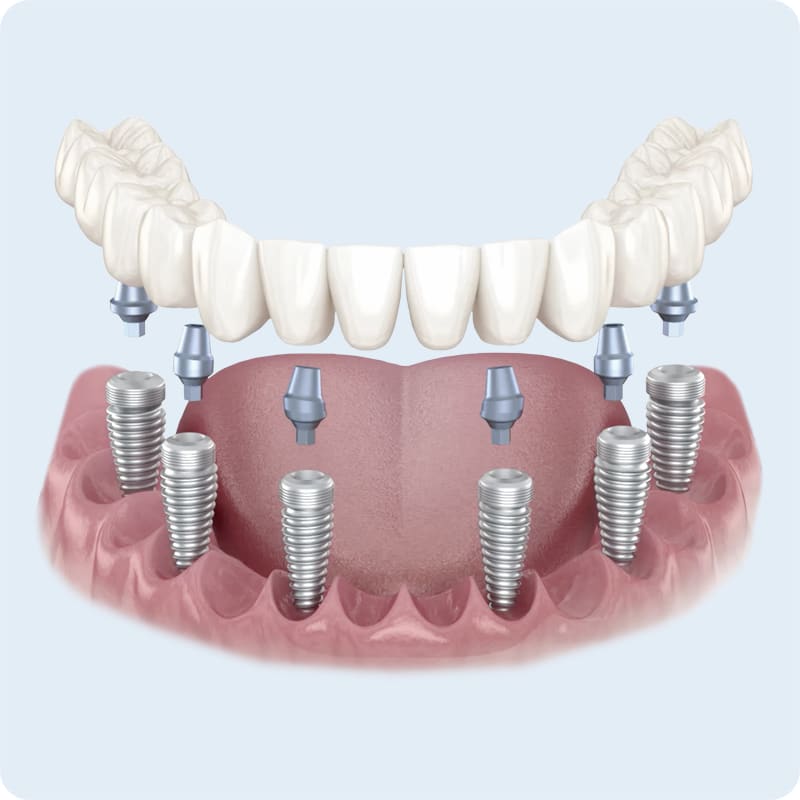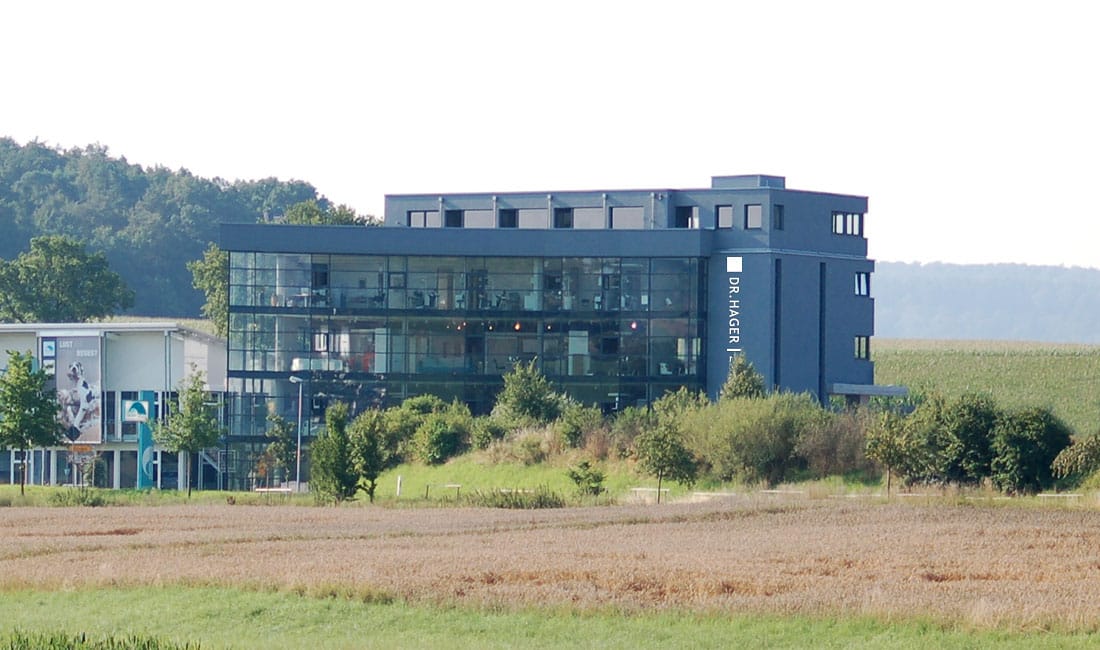Total prosthesis (full prosthesis)
We will be happy to advise you in detail on the possibilities of modern dentures. As experts, we provide even complex dental situations with new teeth – inexpensive, high quality and durable for your health.
- Removable and fixed dentures
- Production in our in-house dental laboratory
- Family practice for 40 years, now in its 2nd generation

Complete dentures - removable dentures
Complete dentures (full dentures) are used to replace teeth when all natural teeth have been lost. A full denture can be used in both jaws or just one jaw (if teeth are still present in the other jaw).
The complete dentures restore aesthetics and function (speech and chewing). They are removable, so they can be taken out for cleaning, for example.
The total prosthesis is a minimally invasive option: Neither extensive preparations nor a surgical procedure are required. Compared to dental implants, treatment with a denture is completed quickly – a significant advantage, especially for older patients. Another advantage is the low price.
However, depending on the extent of the jaw loss, it may be advisable to support the full denture with implants to ensure a better hold.


“A complete denture is an effective solution for patients who have lost all their natural teeth. Not only does it allow chewing function to be restored, it also helps to improve aesthetic appearance and self-confidence.”
Dr. Eva Krapf
How do full dentures last?
In contrast to all other dentures, complete dentures are held in place by suction (adhesion), as there are no teeth to attach them.
Basically, the retention depends on the shape of the jaw, the prosthesis and the saliva flow. With well-fitting dentures, a thin film of saliva forms between the denture and the mucous membrane of the jaw, which creates a suction effect. This adhesion helps to hold the prosthesis in place.
In cases where the natural suction effect is not sufficient, a special adhesive cream can be used to better fix the prosthesis in place.

How can prosthesis retention be improved?
Prostheses often fail to adhere properly in cases of severe jaw bone loss, low bone volume or reduced saliva production. Although adhesive creams offer a short-term solution, they should not be seen as a permanent measure.
Fixing the prosthesis with implants is a long-term and effective solution. These implants serve as stable anchoring points to which the prostheses can be attached, significantly improving the function and comfort of the prostheses.
In addition, implant-supported prostheses contribute to a better distribution of chewing forces.

The ball-and-socket prosthesis consists of an artificial row of teeth that sits on a gum-colored base frame and can be "clicked" onto 2-4 implants.
Here you can see two ball head dental implants, which are artificial tooth roots that are surgically inserted into the jawbone and to
which dentures, among other things, can be attached.
What alternatives are there to prostheses?
Implants are essential to provide a fixed alternative. Fixed bridges are anchored to these implants. Depending on the bone situation, 4-6 implants are required.
The bridges are screwed onto the implants, ensuring optimum function and aesthetics. Patients can eat again without restriction and their sense of taste is normalized as the palate is no longer covered by a prosthesis.
We will be happy to advise you on this at our dental practices in Constance and Bietingen near Schaffhausen.

These high-quality ceramic teeth are a significant improvement on an implant-supported prosthesis. They are firmly connected to the implants and cemented in place.
Abutments are connecting pieces that are screwed onto the implants. They enable the ceramic teeth to be attached so that firm chewing is possible.
Cleaning the new teeth is crucial for long-term success. The design of the interdental spaces is chosen by the dental technician so that patients can clean them adequately with toothbrushes and interdental brushes.
Ranking according to comfort, function (speaking, eating, holding) and aesthetics
| Total prosthesis | + |
| Model casting prosthesis | + |
| Telescopic prosthesis | ++ |
| Implant prosthesis | +++++ |
| Fixed dentures | +++++++++ |
Advantages and disadvantages of full dentures
- Most favorable performance
- Poor grip
- Language restricted
- Bone loss due to lack of bone loading
- Food restricted
- Palate covered (taste impaired)
- Pressure points
- Annoying adhesive cream

Dental advice
If you have any questions or would like advice about teeth grinding, we will be happy to help you personally. Visit us during our consultation hours in one of our two dental practices.

and the Dr. Hager team

Frequently asked questions about full dentures
What does a full denture cost?
We will be happy to advise you personally on your individual fixed price in a free initial consultation (possibly €60 OPG).
What is a total prosthesis
A complete denture is a removable dental prosthesis for the edentulous jaw.
How is a full denture held in the upper jaw?
It either sucks itself in through surface tension or can be held in place with implants and ball anchors.
When is a total prosthesis advisable?
For patients with edentulous jaws. However, we recommend attachment to at least two implants. A fixed solution is always desirable.
How is a full denture fabricated?
It takes several sessions with fittings, impressions and selection of the acrylic teeth before the prosthesis can be completed.
What full dentures are available?
Pure full dentures or implant-supported dentures.
How long does it take to make a prosthesis?
It depends on the individual situation. Generally 2-4 weeks.
Can you eat anything with dentures?
In general, you can only bite sideways because of the mobility (due to the removal) and are restricted when eating meat or raw vegetables compared to a fixed denture.
Due to tilting, a fixed solution on implants should always be aimed for.
How do you chew with a full denture?
Cut the bites as small as possible and chew small on the sides. Wearing comfort and chewing function are significantly restricted with a denture.

